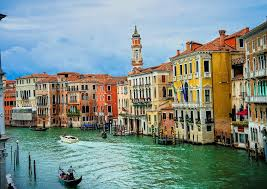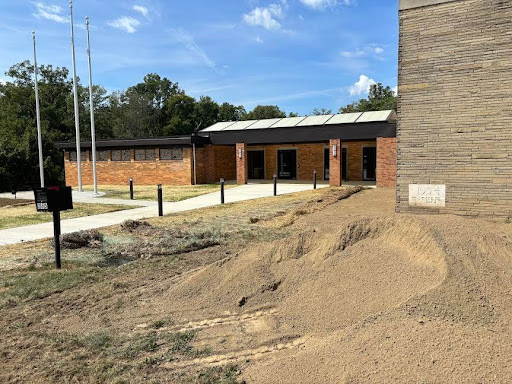
The allure of the mythical city of Atlantis spans across the globe. However, this lost kingdom may not be alone at the bottom of the ocean for much longer. Experts predict that the Italian city of Venice will join Atlantis underwater by the year 2100.
Venice was built across a series of 126 small islands to protect its citizens from the attacks of barbarian intruders. While the concept of a floating city is beautiful, it was not realistic for its time.
The inadequate construction of the city led to unstable foundations. When these poor foundations were confronted with the pumping of groundwater out from under the city and rising sea levels, they began to fail, causing the ground to compact and the city to sink.
Trinity High School World History and Emerging Worlds teacher, Mrs. Zivanovich, says, “It’s important to remember that the city was built when engines weren’t a thing – so with the increase in tourism and new technology, the city is working to maintain its quiet culture and structural integrity.”
If the city sinks completely, it would devastate the way of life for all Venice citizens. The massive flooding in the city has led to economic instability for residents, making life in Venice miserable. This is expected to worsen as the city has a history of heavy flooding between the months of October and March.
Tourism is also adding to the struggle of Venice’s citizen’s, as they attempt to keep their economy strong while fighting against nature itself.
“I’m so glad that I got to visit Venice but it is also difficult to deny that the high rates of tourism are hurting the city. Some of the canals we saw had trash in them, but locals and the Italians are really pushing to keep the city clean,” says Zivanovich.
All hope is not lost, however, as the Italian government has instituted a plan to save the city of Venice from sinking into the lagoon it was built on. By installing a series of moveable gates beneath the lagoon, the water flooding the city is being held back. This solution comes with its own concerns, though.
Because of their design, the gates are unable to protect low-lying areas from flooding. Even worse, frequent usage of the gates would irreparably damage the lagoon’s ecosystem by allowing for sewage to become trapped inside.
With so many factors in the sinking of Venice and attempts being made to stop it, the city has seen its fair share of publicity recently, and its residents can only hope that they will be able to recover without further harming themselves in the process.







